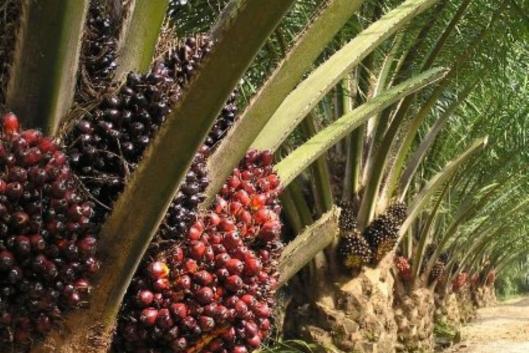The Philippine A. Brown Company, Inc. is engaged in the business of oil palm plantation development and milling. In 2010, the company started planting oil palm on 520 hectares of public land claimed by the Higaonon indigenous people.
The Higaonon people of the barangays (villages) of Bagocboc and Tingalan in the municipality of Opol, in the southern Philippine province of Misamis Oriental, claim that they have been occupying these lands since before the Spanish colonial era. Their ancestors hunted animals, gathered honey and kept small portions of land for agriculture, maintaining their unique culture. Although the Higaonon were displaced in the 1950s to make way for the logging and livestock grazing ventures of landlords, they kept coming back to their lands, making them productive.
A. Brown entered the Higaonon people’s land to establish an oil palm plantation without obtaining their free, prior and informed consent. This land grab has involved numerous human rights violations, including the shooting and illegal arrest of farmers, burning of houses, uprooting of crops, harassment and death threats.
All of this was revealed by an International Fact-Finding Mission (IFFM) that began last May 6 and was conducted by the Pesticide Action Network Asia and the Pacific (PAN AP), the Peasant Movement of the Philippines (KMP), the Asian Peasant Coalition (APC), Sentro Kitanglad, Kalumbay Regional Lumad Organization and other organizations based in Opol.
The IFFM discovered that A. Brown does not yet have a permit to operate in the said area. Officials from the Department of Environment and Natural Resources (DENR) said that the government agency has not issued any permit for these operations, which means the company is violating existing forestry and environmental laws.
The findings of the IFFM were presented in a public forum at the University of the Philippines-Diliman, where demands were reiterated for the pull-out of A. Brown from Opol and the immediate return of the indigenous peoples to their ancestral land. They also called for the investigation of human rights violations against the Higaonon (see the IFFM findings at http://www.panap.net/en/fs/post/food-sovereignty-resistance-land-grabbing/1069).
The establishment of large-scale oil palm plantations also undermines the Higaonon people’s food sovereignty. "With our lands being taken away, our families left to starve, and our rights violated, we have no choice but to fight. As indigenous peoples, we have the right to land, yet this has continuously been denied to us," said Rubenson Batuto, whose family has lived in Tingalan since the pre-Spanish colonization era.
Agrochemicals applied in the company’s industrial oil palm plantations, including carbofuran and glyphosate, are gradually affecting the health of the Higaonon; residents of Opol have reported an increase in the incidence of coughs and colds, skin diseases, diarrhea and other illnesses since the plantation started spraying pesticides. In addition, their coconut and banana trees – their only source of livelihood – have been slowly dying since the plantation's entry.
Erwin Navarro of PAN AP warned of the social, cultural, health and environmental impacts of large-scale oil palm plantations, which have expanded in other Asian countries, bulldozing forests and displacing numerous indigenous peoples. Now, industrial oil palm plantations are entering the Philippines to become a major export crop, as is also the case in the municipalities of Española, Quezon and Brooke's Point in Palawan, denounced by the Philippines-based advocacy campaign network of indigenous peoples ALDAW and reported this year in WRM Bulletin Nº 174.
A campaign is being carried out to gather signatures for a petition calling on the Philippine government to oust A. Brown immediately from Opol; to stop human rights violations, as well as punish the perpetrators and indemnify the victims; and to stop the desecration of sacred sites. The petition also demands that A. Brown, together with all concerned units and agencies of the Philippine government, clean up and rehabilitate the contaminated areas, provide immediate economic relief to the farmers, and follow the free, prior and informed consent process.
You are invited to support the farmers and indigenous peoples of Opol in reclaiming their lands by signing the petition letter at http://www.panap.net/en/fs/page/food-sovereignty/1130
Globally, the expansion of oil palm has been made possible through land grabbing, land use conversion, and rapid deforestation. Displaced farmers and indigenous peoples have been forced to become agricultural workers in oil palm plantations. Oil palm expansion has in general brought about increased hunger and poverty while benefitting only a few private interests.
Article based on information from: “Palm oil plantation in Misamis Oriental has no right to occupy indigenous lands, IFFM says”, Pesticide Action Network Asia and the Pacific (PAN AP), http://www.panap.net/en/fs/post/food-sovereignty-resistance-land-grabbing/1070
